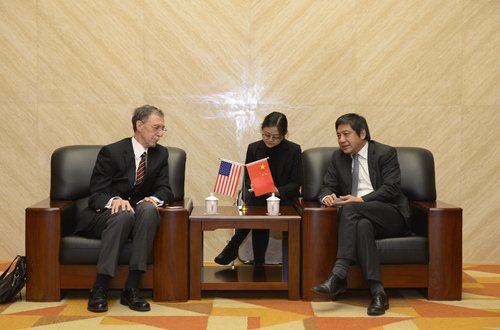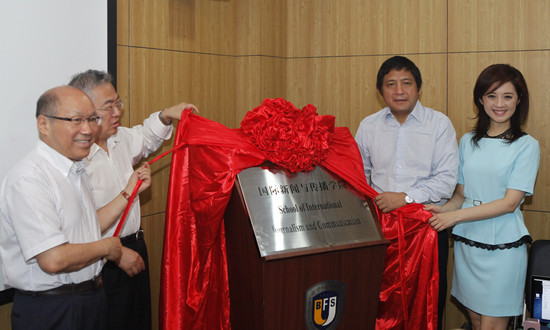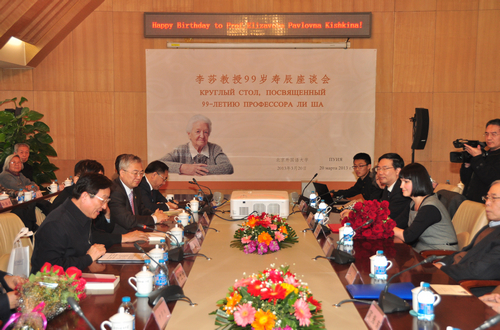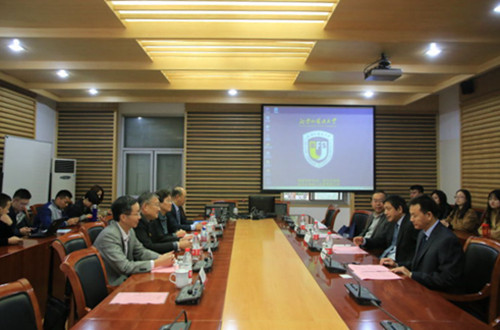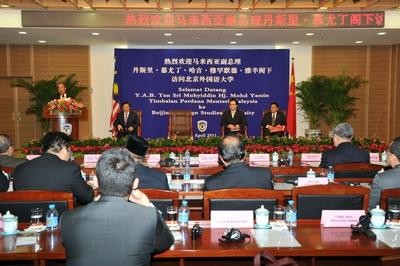Professor John W -Boye, Dean Of The University Of Chicago University, Visited Our School And Gave A Special Lecture
Professor John W -Boye, Dean Of The University Of Chicago University, Visited Our School And Gave A Special Lecture
On the afternoon of March 23, Professor Profe, Dean of the University of Chicago, visited our school and gave a special lecture. President Peng Long and Vice President Yan Guohua met with Boye.Peng Long welcomed Professor Boye to visit Beiwai, and briefly introduced basic situations such as the historical revolution of Beiwai, the setting of the department, the characteristics of school running, student scale, international exchanges and cooperation. He said that the University of Chicago is one of the most famous top universities in the United States. The undergraduate college of the school is also the oldest undergraduate college with the longest history and the most sophisticated course settings. Peng Long said that Beiwai is committed to cultivating compound and compound international professionals, and attaches great importance to establishing a cooperative relationship with the University of Chicago. And explore the opportunities of cooperation between the two sides in general education, such as teachers
On the afternoon of March 23, Professor Profe, Dean of the University of Chicago, visited our school and gave a special lecture. President Peng Long and Vice President Yan Guohua met with Boye.
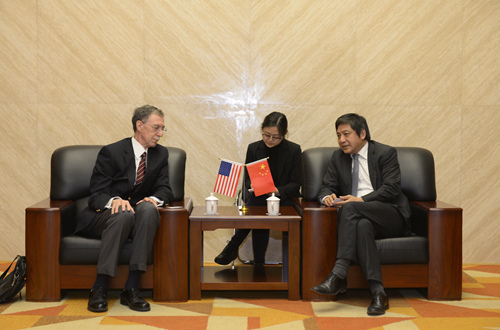
Peng Long welcomed Professor Boye to visit Beiwai, and briefly introduced basic situations such as the historical revolution of Beiwai, the setting of the department, the characteristics of school running, student scale, international exchanges and cooperation. He said that the University of Chicago is one of the most famous top universities in the United States. The undergraduate college of the school is also the oldest undergraduate college with the longest history and the most sophisticated course settings. Peng Long said that Beiwai is committed to cultivating compound and compound international professionals, and attaches great importance to establishing a cooperative relationship with the University of Chicago. And explore the opportunities of cooperation between the two sides in general education, such as teachers' training and curriculum construction. In the end, he wished Professor John's lecture a successful success.
Boye said that he was glad to come to Beiwai to visit and communicate with teachers and students from Beiwai. He was glad to see Beiwai cultivated a large number of outstanding foreign talents for China, and was committed to carrying out general education and cultivating social elites. He emphasized that higher education can promote the process of mass culture and modernization, and universities are the source of creating knowledge and promoting innovation. Only universities can only go further by trying to preserve their own history, values and ideas. It is hoped that this lecture can help teachers and students better understand the historical development of the University of Chicago, US higher education, and general education.
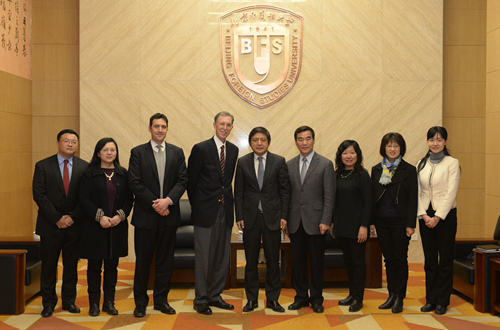
Ke Jing, the director of the International Division, Jin Limin, Director of the Academic Affairs Department, Li Liwen, Dean of the Academy of English and Deputy Dean of the Academy of English, Deputy Director and Jing of the Confucius Institute's Work Office, and Wu Hao, deputy secretary general of the Education Foundation, attended the meeting.
After the meeting, Professor Boye held a lecture entitled "The and ITS" in the 5th floor academic lecture hall of the library. The lecture was chaired by Yan Guohua.
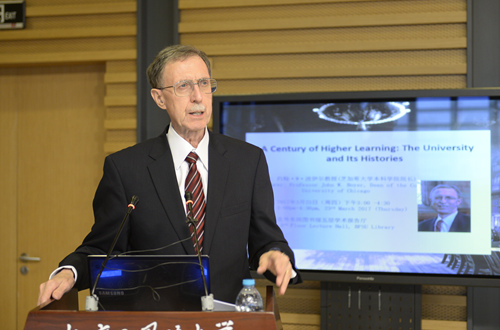
Boya introduced how the University of Chicago has been successfully established several times and has quickly developed into a first -class university in the United States in just decades. The strong and unique style of debate, and how this school style is deeply rooted in the history of the University of Chicago in the history of higher education in the United States. Boye pointed out that the success of the University of Chicago has benefited from the three major elements, namely excellent teachers, perfect courses, and high -quality students. He also talked about the various challenges faced by the University of Chicago and even higher education, such as the relationship between balanced general education, scientific and technological innovation and career development, how to retain the historical characteristics of colleges and universities, and how to shoulder social responsibility. In the interaction of teachers and students, from the perspective of historians and educators, Boye has done to cultivate students' mental ability, encourage teachers and scholars to invest in undergraduate teaching, and how to help students focus on learning and understand themselves. Wonderful answer. Professor Boye's lecture helped our teachers and students to better understand the historical development of the University of Chicago, US higher education, and general education, and in -balanced and inspiring.
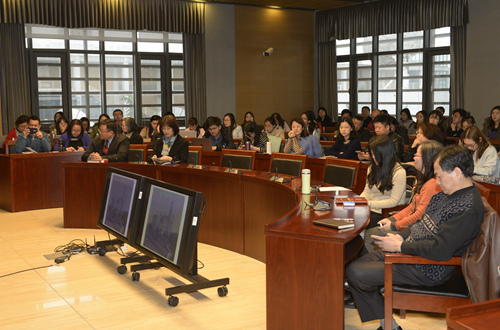
Professor John W. Boya is an outstanding historical professor at the University of Chicago. Since 1992, he has been the dean of the University of Chicago for more than 20 years. During his tenure, he has been committed to adding general education courses, strengthening enrollment, and creating for international students. More opportunities and many innovative projects in the field of career development. The number of students from the University of Chicago has increased from 3,400 to 6,000, becoming the most popular and competitive undergraduate college in the United States. Professor Boye is also an expert in the history of Germany and the Habers Empire. The publishing books include the "Origin of the Empire of the Empire of Vienna 1848-1897" and "Vienna Culture and Political Crisis: Christian Socialism in Rights 1897- 1918 and so on. Professor Boye recently wrote the history of Austria 1867-1987 for Oxford University Press, and co-edited a modern historical journal with Jan E.. This lecture is based on the book "University of Chicago: a History" he recently published. The Chinese version of the book is being translated by our school and Associate Professor Jing.
(Zhu Wen, International Department)

